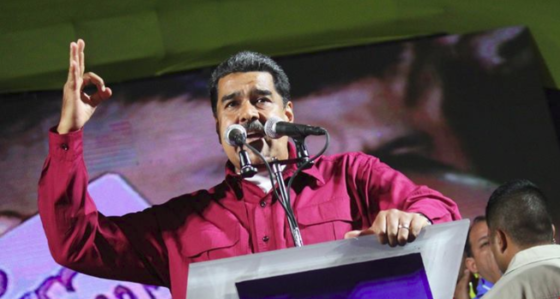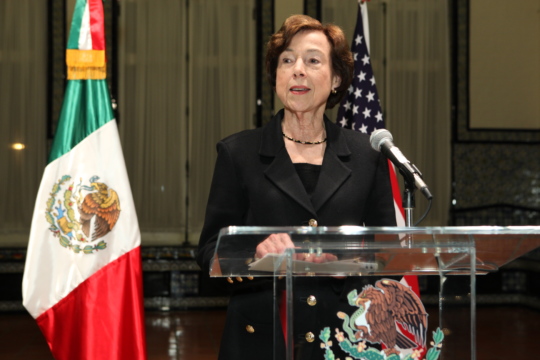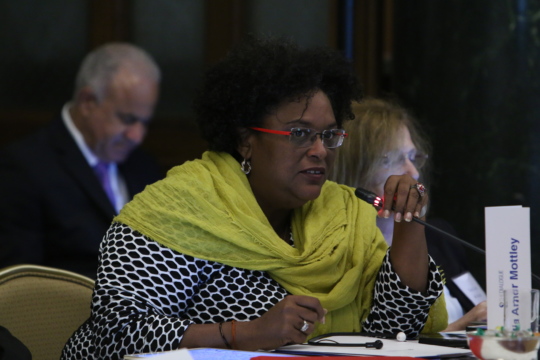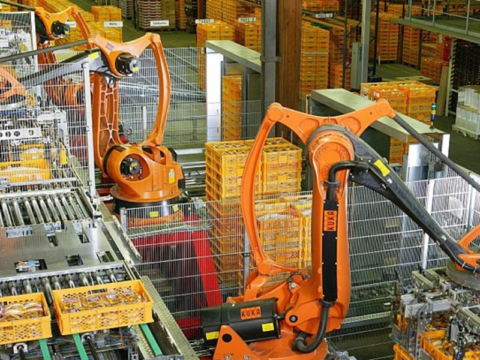
Will Automation Create or Kill Jobs in Latin America and the Caribbean?
The promise and peril of new technologies in Latin American and Caribbean economies.
The promise and peril of new technologies in Latin American and Caribbean economies.
La fuerte disminución en el 2017 se debe a que los bancos estatales chinos se abstuvieron de hacer préstamos a Venezuela, de lejos el mayor receptor de financiamiento del gigante asiático en la región desde el 2005.
“Despite the 2008 economic recession and the ensuing decrease in the value of commodities, Colombia has maintained a steady growth rate and continued foreign investment”, said Mauricio Cárdenas, Colombia’s Minister of Finance and Public Credit, during an April 19 discussion at the Inter-American Dialogue.
On April 18, the Inter-American Dialogue in partnership with the OECD Development Centre, CAF—Development Bank of Latin America, the UN Economic Commission for Latin America and the Caribbean, the European Commission, and the Inter-American Development Bank, held an open discussion on how building transparent and effective institutions in Latin America can lead to economic growth and development in the region.
On April 20, the Inter-American Dialogue in partnership with the Brookings Global – CERES Economic and Social Policy in Latin America Initiative (CERES), hosted the Minister of Finance of Chile, Felipe Larraín Bascuñán, for an open conversation on the economic challenges and choices facing Chile.
Macri has repeatedly said that he will maintain his course and not yield to what he calls the political opportunism of the opposition. But if he is to lead a true alternative to the left- and right-wing populist tendencies that have ruled Argentina for decades, Macri’s gradualism must pick up the pace and start showing results.
On May 3, the Inter-American Dialogue in partnership with the Institute for Integrated Transitions (IFIT) hosted an event titled “Inside Perspectives on Possible Scenarios in Venezuela”. This discussion, moderated by Michael Camilleri, featured panelists Margarita López Maya from Tulane University, Michael Penfold from the Instituto de Estudios Superiores de Administración, and Orlando Ochoa, an independent economist and consultant. The conversation explored the situation in Venezuela and offered possible scenarios for the near term including their expected risks, opportunities, and trend lines.
Argentina’s turn to the IMF to relieve pressure on the peso carries significant political risks for the president.
Cuba has a new head of state in President Miguel Díaz-Canel. However, the residual power of the revolutionary generation means the rejuvenation of the island’s political elite is only getting started.
What is behind the slide in the Argentine peso, and what more can the central bank do to address the problem? Is Macri making the right move by seeking help from the IMF, or will he pay a political price at home for embracing the Washington-based lender? Is Argentina at risk of falling into a full-blown financial and economic crisis this year?
On May 11, the Inter-American Dialogue hosted an event titled “Anticipating the Mexican Elections”. This discussion, moderated by Michael Shifter, featured panelists Shannon O’Neil from the Council on Foreign Relations, Juan Pablo del Valle from Mexichem, and Enrique Bravo-Escobar from the National Endowment for Democracy.
CGTN’s Rachelle Akuffo spoke to Michael Shifter about the effect Maduro’s re-election could have on Venezuela’s already flailing economy.
Another term for Nicolas Maduro offers little hope for the sort of changes needed to address Venezuela’s crisis.
Carla Hills, the lead US architect of the original NAFTA trade agreement, gave an interview with NPR regarding the new negotiations.
On May 24, Dialogue member Mia Amor Mottley was elected as Prime Minister of Barbados after the Barbados Labour Party (BLP) won the general election.
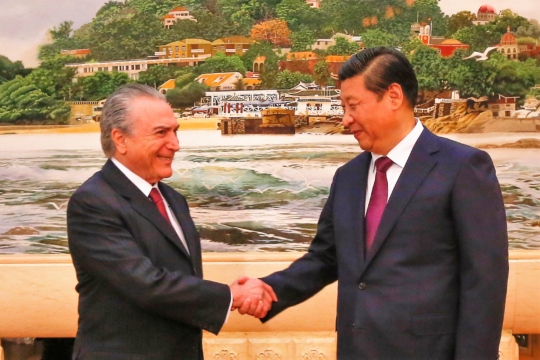
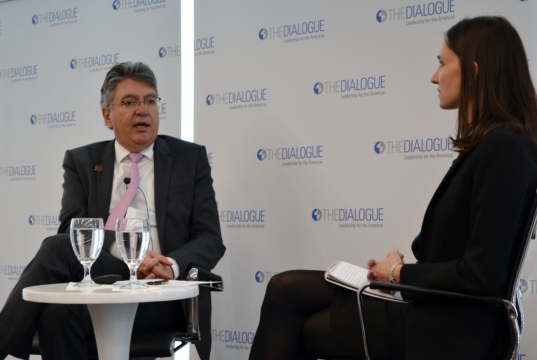 Video
Video
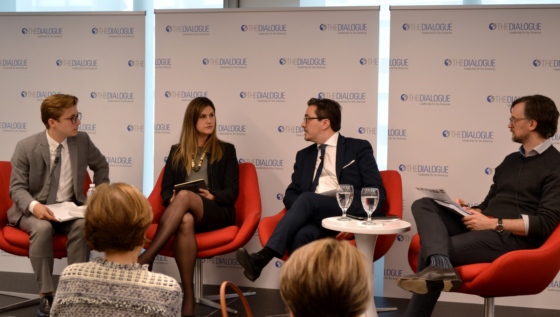 Video
Video
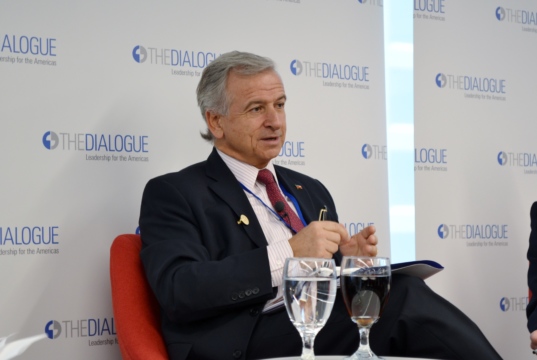 Video
Video

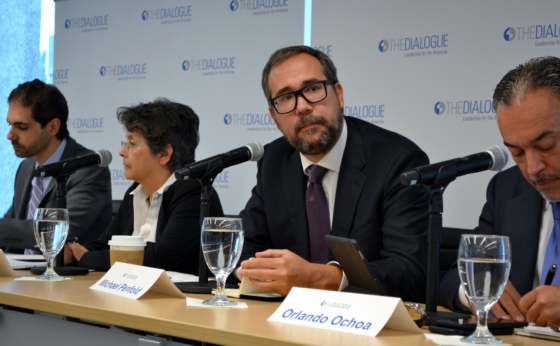 Video
Video
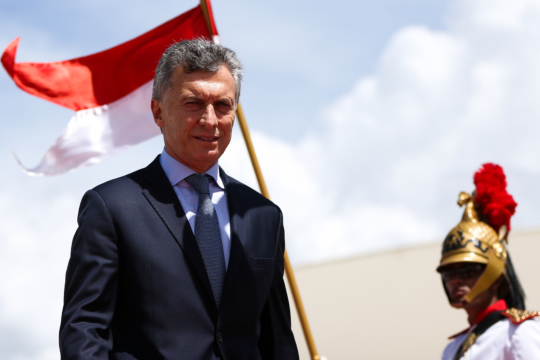
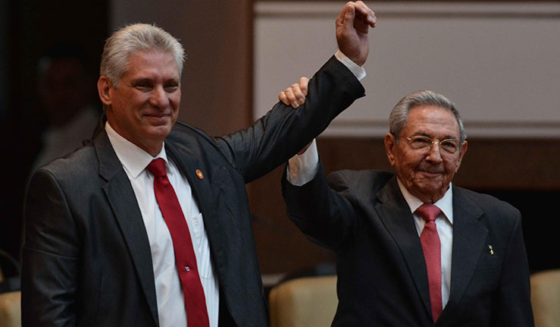
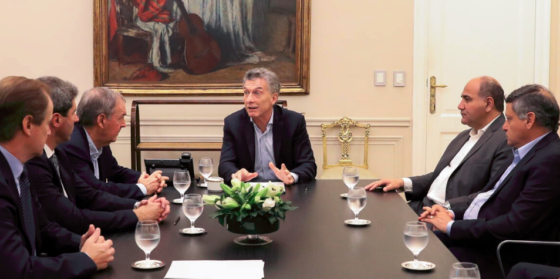
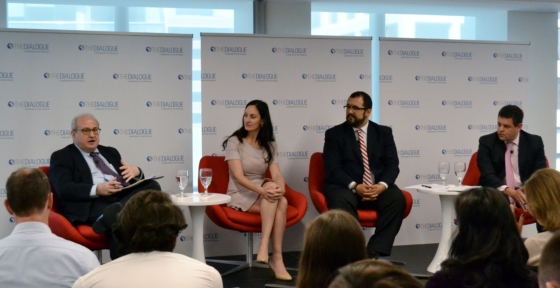 Video
Video
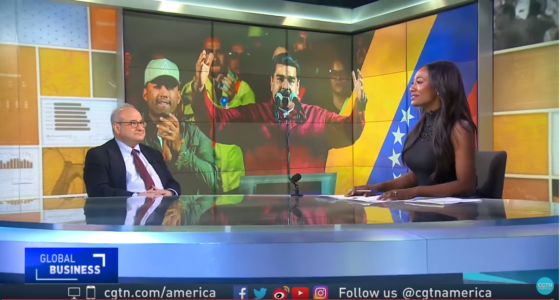 Video
Video
